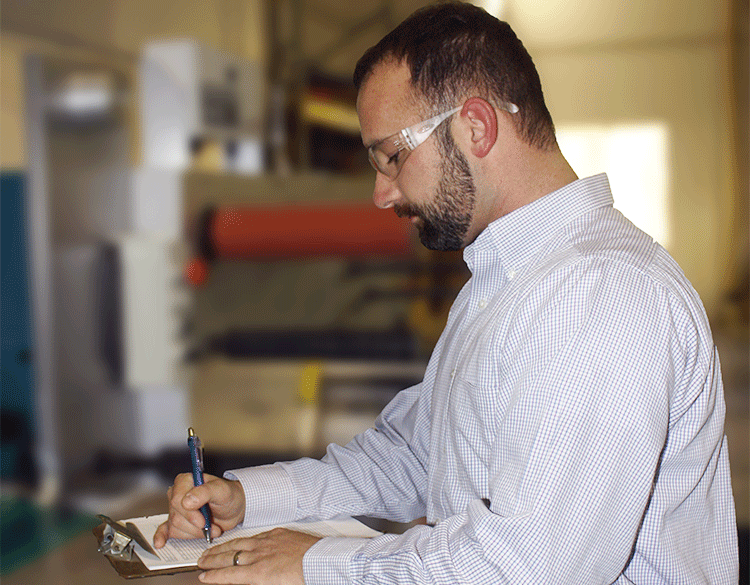Skip to content
Q&A: Behind Technical Service
- What are the different ways technical service is involved with customers? Technical service often gets involved with the customer’s process to initially help make product recommendations based on the process and application. Anytime a new adhesive is identified for a customer, technical service is on site during an adhesive trial to ensure the product performs to our customer’s standards. Technical service remains involved with customers on an ongoing basis by working with sales representatives to conduct adhesive audits that provide continual improvement as well as address any technical issues that may arise.
- What is the goal of the Adhesive Efficiency Plan? The over-arching goal is to optimize the customer’s gluing process. To do this, we work with our customers to benchmark their current application standards and identify any potential areas of improvement. During this process, we often find that we can help customers reduce their adhesive consumption without compromising the integrity of their product. This also allows us to get a good idea of the customer’s total gluing cost, including maintenance costs, downtime costs, rework/reject costs as well as spoilage costs. By determining the total cost associated with gluing, we can often identify the optimal adhesive to lower the overall cost of gluing and improve production.
- As a technical analyst, what are some common adhesive issues you run into? When approaching any adhesive-related issue, we go through a series of checks and information gathering referred to as MSECP. MSECP refers to Machinery/Equipment, Substrates, End Use Conditions, Cost and Plant Conditions. The issue often lies in one of these areas; we take a process-focused approach in working through these adhesive related concerns. Some common problems that we run into are associated with variability in substrates, fluctuations in plant temperatures and humidity, and adhesive waste (i.e., improper placement of beads on substrates, applying adhesive in gaps between flaps, and adhesive being extruded before or after substrate is in place).
- What is an instance where technical service dramatically helped a customer? We recently ran into a situation where one of our current customers had an application where food items were packed at 120°F and then immediately placed in a freezer. This created a need for a specialized adhesive with excellent heat and cold resistance. By introducing the customer to the latest in packaging adhesive technology, we were able to help eliminate case failures in the plant as well as in the field.
- What sets our technical service apart from other companies? It starts with product knowledge; our technical staff goes through extensive technical training, and that training is always ongoing. Also, our technical staff spends a great deal of time in the field with customers so that we have a full understanding of a multitude of processes. Lastly, our technical staff works to become an extension of the customer’s company by putting the customer at the center of what we do. This level of dedication is not exclusive to technical service; it is a mentality that spans across all departments within RS industrial.
Page load link

